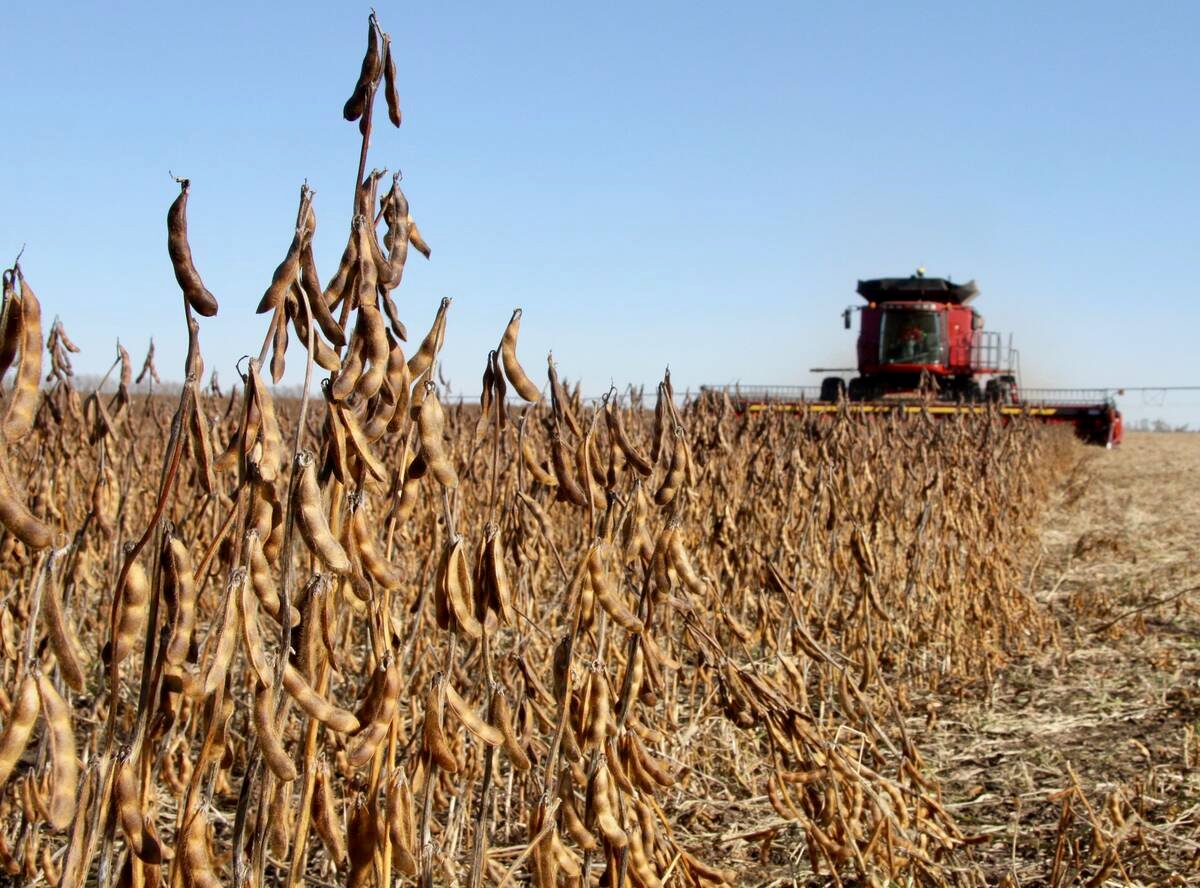CHARLOTTETOWN, P.E.I. – As parched summer turns to political autumn, federal agriculture minister Lyle Vanclief will be under pressure to assure affected farmers that they will receive extraordinary help for the drought.
So far, the minister has not budged publicly from his July comments that existing safety nets should be allowed to work before there is consideration of additional help.
But last week, a variety of political forces converged to insist Vanclief will not be able to hold that position. They urged him to assure farmers that help will be there when it is needed.
Read Also

U.S. soybean crop was not all roses this year
The USDA is forecasting record U.S. soybean yields but for some growers it was a disastrous year due to excess moisture.
“I’m not calling for X number of additional millions of dollars and I’m not asking for a blank federal cheque, but I am saying if the facts warrant it, and I believe they will, we need to be prepared to move beyond existing safety nets,” Prince Edward Island agriculture minister Mitch Murphy said in an interview in Charlottetown.
He predicted provincial agriculture ministers will be united this autumn in calling for a post-harvest federal-provincial meeting to assess what is needed.
“Not to put anyone on the spot, but I know the federal minister has been to Saskatchewan and his message was that nothing outside of existing safety nets is there,” said Murphy. “It’s too early to know exactly what, but I’m confident enough now to say that response cannot hold. Something more will be needed.”
It is the message Vanclief and prime minister Jean Chrétien are expected to hear in spades this week when the Liberal caucus meets in Edmonton to talk about the fall legislative agenda. A number of rural MPs will raise the impact of the drought in their ridings.
“We have to send out a message that we understand the impact of this, care about it and will do something,” one Liberal said last week. “Farmers need to know we are there for them.”
Last week, opposition MPs promised that when Parliament resumes sitting in mid-September, they will hound the Liberals to extract drought aid assistance.
“My concern is that there will be extra help in provinces where the provincial governments are better off, Quebec, Ontario and Alberta, but not in poorer provinces,” said Canadian Alliance agriculture critic Howard Hilstrom. “We need a national approach to drought aid and we’ll be pressing the government to announce one.”
New Democrat MP Dick Proctor said the federal government is wise to wait until after harvest to make specific commitments. But a general promise of support is crucial.
“The government should not be waiting just to do nothing,” he said from Moose Jaw, Sask. “It’s waiting to see how much needs to be done.”
The farm lobby will be pressing to make the same point.
On Aug. 20, Vanclief was taken on a tour of drought damage in his own Prince Edward County riding in Ontario.
“We’re trying to get the message out and then go on from there,” said Lloyd Crowe, a corn and soybean producer who squired the minister around. He estimated corn losses in the area to be 80 percent.
Added Canadian Federation of Agriculture president Bob Friesen: “We need a clear promise of support from the government. He has to send a clear statement to farmers and Canadians that the government is there. This drought is just piling one more thing on farmers who have been going through a very difficult time.”
Friesen said farm lobbyists would step up pressure on governments and ministers once the extent of the drought damage is known.
And he noted the American government recently agreed to send an additional $5.5 billion US to farmers, including $5 billion to grain, oilseeds and cotton farmers facing low prices and drought.
“Once again, American farmers are getting more help than Canadian farmers are getting,” he said. “It makes it all the harder to compete.”














